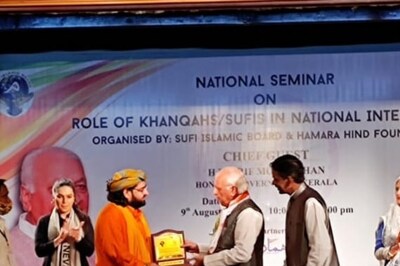
views
London: An Indian-origin student has sued Oxford University for "boring" teaching which allegedly resulted in him getting a second class degree and in turn led to loss of earnings in his career as a lawyer.
Faiz Siddiqui studied modern history at Brasenose College at the university and accuses its staff of "negligent" teaching of his specialist subject course on Indian imperial history, which led to him getting a 2:1 back in 2000, the High Court in London heard this week.
A judgment is expected later this month.
Siddiqui's barrister Roger Mallalieu told the judge that the problem came down to four of the seven staff teaching Asian history being on sabbatical leave at the same time during the 1999-2000 academic year, The Sunday Times reported.
Siddiqui believes he could have had a high-flying career as an international commercial lawyer if he had not got lower grades.
He singled out the "boring" standard of tuition that Siddiqui had received from David Washbrook, an expert on the history of southern India between the 18th and 20th centuries.
Mallalieu claimed that the eminent historian's teaching had suffered from the "intolerable" pressure of the staff shortages on the course.
"There is no personal criticism of Washbrook. Our target is on the university's back for allowing this to happen," Mallalieu told the court.
Siddiqui, who trained as a solicitor after college, suffers from depression and insomnia, which he links to his "disappointing examination results", and has said he has a "fundamental inability to hold down any professional day job for any significant length of time".
Oxford University argues that the claim is baseless and should be struck out because of the number of years that have passed since Siddiqui graduated.
Julian Milford, the university's barrister, denied that Siddiqui's case had any substance but admitted that "circumstances were difficult" during that year. Siddiqui's legal team claims he is "only one of a number of students who no doubt have proper cause for complaint against the university in relation to this matter".




















Comments
0 comment